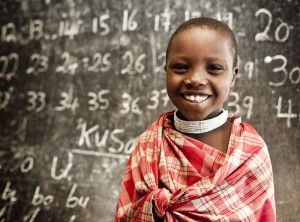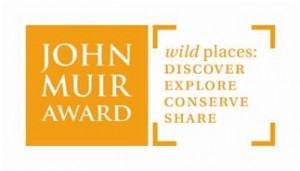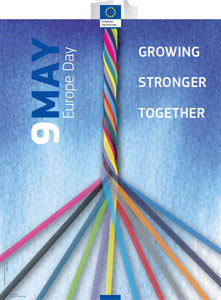

Global Citizenship blog
 Woodfarm High School will host this year’s global citizenship event in East Renfrewshire and invites members of their local community to see the diverse and inspirational work undertaking in schools across the local authority.
Woodfarm High School will host this year’s global citizenship event in East Renfrewshire and invites members of their local community to see the diverse and inspirational work undertaking in schools across the local authority.
The programme includes music and dance performances as well as a variety of Fair Trade food and jewellery stalls, henna tattoos drawing and a plant sale.
Event details:
Woodfarm High School
Wednesday, 23 May
Time: 4 – 6pm
MoreTeachers are adept at finding effective and innovative ways to support student learning, and I often see great examples of this for various aspects of global citizenship. Here in Scotland there’s a system run by the General Teaching Council Scotland by which teachers can get Professional Recognition for excellent practice.
Last week a celebratory event was held in Glasgow at which local teachers received their Award certificates for their achievements in education for global citizenship. It was a pleasure to talk to the teachers involved, and see the displays of material about school partnerships with sub-Saharan Africa, e-twinning projects, Comenius school partnerships in Europe, and much more. Congratulations to all involved.
Ten of those teachers are also involved in the ‘Global Storylines’ project led by WOSDEC (West of Scotland Development Education Centre), Glasgow City Council and the University of Strathclyde. This uses the Storylines approach to get pupils to develop stories around themes such as conflict, sustainability and food. A dissemination event to be held at Strathclyde University later this week will share some of the experience gained from this project with a wider group of teachers.
More Education Scotland hosted an event in partnership with the Ellen MacArthur Foundation and the University of Edinburgh on 30th March 2012 at the Menzies Hotel in Glasgow to explore how the concept of a circular economy can be used as a focus for sustainable development education and interdisciplinary learning.
Education Scotland hosted an event in partnership with the Ellen MacArthur Foundation and the University of Edinburgh on 30th March 2012 at the Menzies Hotel in Glasgow to explore how the concept of a circular economy can be used as a focus for sustainable development education and interdisciplinary learning.
The circular economy is a generic term for an industrial economy that is, by design or intention, restorative and in which materials flows are of two types, biological nutrients, designed to re-enter the biosphere safely, and technical nutrients, which are designed to circulate at high quality without entering the biosphere. The circular economy proposes a coherent framework for re-thinking and re-building a positive vision of the future.
Find out more about the Ellen MacArthur Foundation and the circular economy by watching this short video: www.ellenmacarthurfoundation.org/convince_me
The presentations and resources from the event are now available on Glow at https://portal.glowscotland.org.uk/establishments/nationalsite/Climate%20Change/Lists/Pages/Resources.aspx
More Thank you once again to the 58 schools and 1700 pupils who took part in our Marine Science Glow meet on 23 Feb 2012 organised in partnership with Marine Scotland.
Thank you once again to the 58 schools and 1700 pupils who took part in our Marine Science Glow meet on 23 Feb 2012 organised in partnership with Marine Scotland.
Congratulations too to Abbi from St Mary’s Primary School in Bannockburn who won her school a visit by the Edinburgh Science Festival Marine Detectives Workshop. Abbi’s question was chosen by the judges as the winning question on the day from the hundreds that were received. She asked, ‘Do whales have bellybuttons?’
If you want to find out the answer to this question and all the other questions asked by pupils on the day then visit: http://www.scotland.gov.uk/Topics/marine/education/faq/creatures
The answers to the questions put directly to the presenters on the day are also available and can be downloaded from the link below.
Download presenters answers to Glow questions >>
Special thanks to Marine Scotland all all their staff who have gone to great lengths to provide answers!
More Scotland’s precious wildlife and landscapes are vitally important and Scottish Natural Heritage (SNH) want to offer you the chance to get out and about and experience them!
Scotland’s precious wildlife and landscapes are vitally important and Scottish Natural Heritage (SNH) want to offer you the chance to get out and about and experience them!
SNH have teamed up with a range of other people to bring you a wide variety of organised and fun events during Scottish Biodiversity Week.
Every year there is an astonishing range of events on offer. Here are just a few examples of the kinds of things that you can do:
Visit SNH’s Events Diary to find out what’s on - http://www.snh.gov.uk/protecting-scotlands-nature/safeguarding-biodiversity/events/
More Global storylines is an exciting, innovative three year project in which storyline and drama are used to embed an exploration of global issues into the learning experiences of pupils in Glasgow.
Global storylines is an exciting, innovative three year project in which storyline and drama are used to embed an exploration of global issues into the learning experiences of pupils in Glasgow.
Now in its second year, teachers from 17 Glasgow primary schools are exploring challenging global issues with their pupils, within the safe fictional community that storyline offers. Each global storyline uniquely combines global citizenship methodologies with both the pedagogies of “Storyline” and the associated pedagogies of process drama.
Learners are supported to think creatively, make connections, solve problems, and examine values and attitudes.
The event will be introduced by Steve Bell, Co-creator of Storyline, followed by a presentation by the Global Storylines Team on the scope of the project, the methodology, learning contexts and research findings.
Displays and videos of children’s work, and presentations from the project teachers, help to give a flavour of the project.
Venue & Registration:
Thursday 3rd May 2012, 2.30-5.00pm
University of Strathclyde, McCance Building
If you would like to attend this event, please register at:
http://ewds.strath.ac.uk/engage/Events/GlasgowGlobalStorylinesProject.aspx
MoreThe Global Skills Gap
Three-quarters (74%) of the 500 business leaders polled by ICM Research worried that young people’s horizons are not broad enough to operate a globalised and multicultural economy.
Employers agreed with the statement that: “Unless we better support schools to teach young people to think more globally, the UK is in danger of being left behind by emerging economies such as China, India and Brazil”. The survey conducted on behalf of the British Council and Think Global gauged the extent to which business leaders saw global thinking as an important skill amongst employees and potential recruits.
93% of businesses thought it was important for schools to help young people develop the ability to think globally. 80% said schools should be doing more; only 2% said they should be doing less. In recruiting employees, more employers (79%) said knowledge and awareness of the wider world is more important than: degree subject and classification (74%); A-level results (68%); or A-level subjects (63%).
Read The Global Skills Gap here: www.think-global.org.uk/resources/item.asp?d=6404
More Venue: Glen Strae (near Dalmally), Argyll, Scotland
Venue: Glen Strae (near Dalmally), Argyll, Scotland
Cost: £100
Places: 15
Dates: 25th – 27th May 2012
Times: arrival from 7pm on the Friday, finish before 5pm Sunday
Spend a weekend in a beautiful glen honing your outdoor learning skills. Find out how to get the most from the places you use, and learn practices which can bring out the unique features of your locality and context. Share a stimulating workshop with other educators and journey in a rich landscape full of stories.
Ground - Develop a sense of how to work with the places you take your school/group as more than just venues. Insights from ‘place-based education’ will help you answer the question ‘why here?’ and get the most from the locality in which you work.
Experience – Walk and discuss the ethics of working ‘in, about and for’ places. Look at ways of introducing, working with and reviewing learning in the landscape.
Develop – Model and discuss techniques and exercises for all age ranges which bring out the varied elements of place: history, land-use, ecology and personal connections.
Understand – Discuss the ideas behind this approach, asking what is a ‘sense of place?’ and investigating the curriculum and educational links to topics such as sustainability, and personal well-being.
We will be camping so please bring your own food, outdoor clothing and camping equipment. Transport is possible by train (Glasgow – Oban line), transfers between Dalmally Station and Glen Strae can be arranged.
A deposit of £50 will reserve your place please contact [email protected] for details
Deposits are non-returnable and full balances will be due 4 weeks before the course – we recommend you take out insurance for cancellation
Any queries please contact [email protected]
More The John Muir Award (an educational initiative of the John Muir Trust) is offering an exciting opportunity for an educator who would like to develop their knowledge and experience of outdoor learning.
The John Muir Award (an educational initiative of the John Muir Trust) is offering an exciting opportunity for an educator who would like to develop their knowledge and experience of outdoor learning.
The John Muir Award is an environmental award scheme focused on wild places. It aims to encourage people of all backgrounds to connect with, enjoy and care for wild places. It is a nationally recognised scheme that is already demonstrating strong links with Curriculum for Excellence.
This placement will help interpret and build on Education Scotland’s on-going investment in Outdoor Learning to meet key areas such as Health and Well-being, Global Citizenship, Sustainable Development Education, Literacy, Numeracy, Creativity and Skills for Learning, Life and Work. The placement opportunity will extend and strengthen outdoor learning approaches through the John Muir Award both nationally and in a specific Local Authority area (depending on successful candidate source).
This is a flexible opportunity that we would like to offer in partnership with a Local Authority or other relevant employer. Please note that this is not a fully funded opportunity, and would need to be supported by your current employer. The John Muir Trust can provide substantial support in kind such as office space, management, development and training.
Time commitment: Ideally the placement would be over a full academic year. Part and full time placements will be considered. Location of placement can also be flexible.
Deadline for applications: 18 May, 2012
Prospective applicants should submit a CV and covering letter.
Applications can either be emailed to: [email protected] or posted to:
Rebecca Logsdon, John Muir Award Scotland Education Manager
John Muir Trust, Tower House, Station Road, Pitlochry, PH16 5AN t: 01796 484972
 May 9th is Europe Day, a chance to celebrate our place in the European Union, and many teachers will mark the occasion with some special activity in school. Modern Languages are often the focus of such activity, but teachers will approach the Day in different ways to explore aspects of culture, history and contemporary life - such as food and drink.
May 9th is Europe Day, a chance to celebrate our place in the European Union, and many teachers will mark the occasion with some special activity in school. Modern Languages are often the focus of such activity, but teachers will approach the Day in different ways to explore aspects of culture, history and contemporary life - such as food and drink.
Euroquiz 2012 has stimulated a huge amount of positive work in Scottish primary schools, with teachers encouraging their pupils to increase their knowledge about European countries and institutions. Hundreds of schools are involved in this annual quiz organised by Scottish European Educational Trust, with each school putting forward a team of P7 pupils to represent them in local heats. An example; West Kilbride primary won the North Ayrshire heat. The local winners then go forward to the national Finals, which will be held in the Scottish Parliament on 14th May. If you would like to watch the Finals live, the event will be broadcast on Holyrood TV and you can test yourself against the questions presented to the pupils.
Football is often a topic which appeals to Scottish pupils and their teachers, and the Euro 2012 football finals in Poland and the Ukraine will provide another context for learning more about Europe. UEFA is running a Respect your Health campaign with schools in the two host countries, with another campaign for adults focusing on combating racism in the sport, showing how football can bring people together and encourage responsible behaviour. The Euros are now just 43 days away, and some of us are getting excited!
More
Find us on